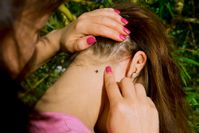Regenerative Medicine Expert Discusses 5 Ways to Avoid Summer Tick Bites

Summer is in full swing, which means gardening, hiking, — and tick bites. More than an annoying seasonal nuisance, these critters are to blame for hundreds of thousands of cases of Lyme disease annually. Many people are diagnosed with tick-borne diseases, including the Heartland virus infection, the flu-like anaplasmosis, and the malaria-like disease babesiosis. To help, the regenerative medicine specialists at Linchitz Medical Wellness in Westbury, NY, have crafted a list of things you can do to avoid summer tick bites.
A Guide to Summertime Tick Bite Prevention
Repel
Insecticides can be an effective means of repelling ticks. Permethrin®, found in antimalarial bed nets, kills adult ticks as well as nymphs, which are the most likely to harbor Lyme disease. Consider purchasing permethrin-treated clothing, shoes, and socks for added protection.
Practice Vigilance at Home
 Camping and hiking aren’t the only ways to catch a tick-borne condition. Most people pick up ticks in activities around the home, with gardening and children’s play ranking high on the list. As such, regenerative medicine professionals recommend parents perform routine tick checks on children when they come inside.
Camping and hiking aren’t the only ways to catch a tick-borne condition. Most people pick up ticks in activities around the home, with gardening and children’s play ranking high on the list. As such, regenerative medicine professionals recommend parents perform routine tick checks on children when they come inside.
Soak in the Sun
Tick nymphs have leaky outer covers that lose moisture rapidly. As a result, they are unable to survive in areas with lower than 80% humidity for more than eight hours. Nymphs gather in leaf piles in humid, shady environments, so choosing sunny areas can help reduce tick exposure.
Chang the Landscape
The majority of ticks in domestic areas stay within a short range of the interface between a wooded area and the yard. To enjoy a tick-free zone, use landscaping that deters woodchucks, deer, mice, and other rodents that spread them. Homeowners should also remove preferred habitats such as groundcover, shrubs, and leaf piles within close proximity to the house.
Lighten Up
Wear lighter clothing during the summer months. Tick nymphs are roughly the size of a poppy seed and dark in color. Avoiding dark colors will help you easily identify them.
If you experience flu-like symptoms or notice a suspicious rash following a tick bite, the allergy immunology experts at Linchitz Medical Wellness can provide you with the treatments and solutions you need to diagnose and address the issue. Visit the website or call (516) 759-4200 to learn more about their immunology and regenerative medicine services.
About the Business
Have a question? Ask the experts!
Send your question

